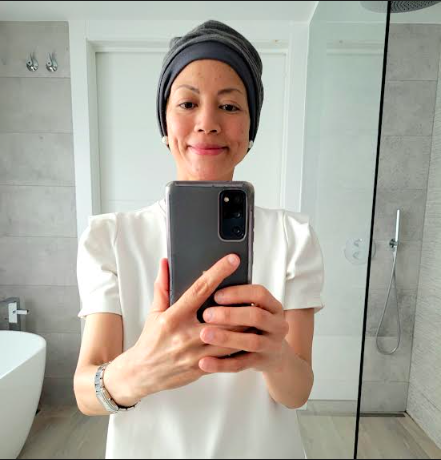I am not a fan of Hope.
All this puffery of Hope — Hope is a thing with feathers, Hope against hope, Audacity of hope — I’m not buying it. Hope isn’t rainbows and butterflies. In fact, it can be vicious. It has, many times, torn me apart.
*
Hope broke me very early on in this cancer journey. People told me “Let’s hope you won’t need chemo. A lot of diagnoses don’t need chemo.” I hoped and prayed for that — a diagnosis that didn’t need chemo. I didn’t mind surgery or radiation; I just didn’t want all the side effects of chemo.
Early test results were promising. My cancer, it seemed, was acting like the relatively easier Luminal A type — and at Stage 1, it was the type that wouldn’t require chemo! I was giddy with possibility! Several tests later, I was told that my type was not Luminal A. Instead, it was the more aggressive Triple-positive which would, very unfortunately, need chemo.
My world collapsed.
Hope kicked me a second time. Two months ago, after my 12th and final chemo session, my MRI scans showed that my tumors had “practically disappeared”. I shrieked in excitement! I hadn’t expected that good of a response! So, after avoiding Hope since the last burn, I dared hope again. I hoped and prayed that my upcoming surgery would confirm that the tumors had, in fact, disappeared.
As it turned out, reports from the pathology lab saw the presence of a 2mm bit of tumor remaining in the tissue that was surgically removed. 2mm! The littlest, teeniest, tiniest thing. Sure, it had “practically” disappeared. But it did not “completely” disappear. And with cancer, we need it to “completely” disappear. That little, teeny, tiny thing changed the game for me. Instead of smooth-sailing towards the finish line of my treatments, I have been thrown back on the chemo chair for a brand new cycle of chemo. Which will last a very long time.
Hope stings. When I dare reach out to it, it slaps my hand.
*
Pema Chodron, a Zen Buddhist, claims we have an addiction to Hope. “As long as we’re addicted to hope, we feel we can tone our experience down or liven it up or change it somehow . . . Hope robs us of the present moment.” When I am hopeful, I am at the same time unsatisfied with my reality. I don’t want this; I want that. It is an implicit awareness that what is happening to me is not good, and that there is an alternative in the future that is better than where I am now.
When I am hopeful, I am also insecure. Because hoping is a recognition that I have no control of the future. (If I had control, I wouldn’t need Hope. I simply would do what was needed to reach my objective.) And yet, despite knowing that the future is beyond control, Hope tells the future what she wants it to be. It is micro-management with absolutely no teeth. And the result is insecurity, longing and a grasping.
Hopefulness as it is, is already an emotionally unsteady place to be in. To top it off, when Hope ultimately spurns, entire worlds collapse.
*
“Abandon hope”, Chodron says. Being hope-less, she says, is the “beginning of the beginning”.
I like that. There seems to be so much wisdom to being hope-less, wish-less, want-less. It is a state of being that is stable and peaceful; no wishing for a specifically-drafted future, no clinging, no expecting. Being hope-less is submitting to perfect humility, knowing your smallness and placing full trust in a greater intelligence. It is faith that everything right now is right, however that may look like, even if it looks like a chemo day unit.
Rather than Hoping, I think I prefer this Knowing.
So, I snuggle in and get cozy in this chemo chair, in this moment. I don’t think of tomorrow. My prayer is wordless, want-less. I know I have everything I need. And I know that I will have everything I need in each moment that arrives. For that, I am peaceful, I am open, I am fortified. It is the beginning of the beginning.

